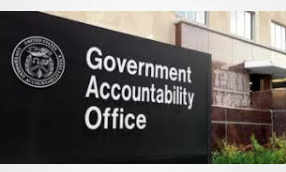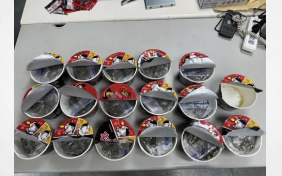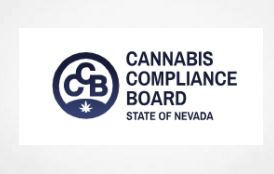4. European Consortium Scores €6.5 in EU Funds for Psilocybin Study
In January, we reported on news that the European Union (EU) had awarded €6.5 million to support a multi-site randomised controlled trial of psilocybin to ease psychological and existential distress in a variety of progressive illnesses like multiple sclerosis (MS) and chronic obstructive pulmonary disorder (COPD).
According to the grant’s recipients, a nineteen-member pan-European consortium dubbed ‘Psypal’, the award represented the first ever European grant to fund clinical research into psychedelic-assisted therapy.
Earlier this month, the group announced that the study has been authorised, with conditions, in the relevant EU member states, and German medical cannabis company Avextra was recently announced as the supplier of the study drug. Psypal hopes to begin recruiting patients in 2025.
Read: European Union Grants €6.5M for Multi-Site Psilocybin Study in Palliative Patients (January 24, 2024).
5. MindMed’s ‘Total Elimination’ of Psychotherapy
In March, LSD drug developer MindMed scored an FDA breakthrough therapy designation for its LSD-D-tartrate candidate (MM120) in the treatment of generalised anxiety disorder (GAD). The company recently announced that it has dosed the first patient in its Phase 3 program studying the same intervention.
Notably, the company and its executives have been keen to emphasise the absence of ‘psychotherapy’ from its protocol. As we explored here, however, debates around what constitutes ‘psychotherapy’ and ‘psychotherapeutic intervention’ are increasingly salient among psychedelic researchers, practitioners and drug developers. These debates are exacerbated by a lack of a common—or at least consensus—language or delineation of these terms.
There’s also the matter of different audiences: while researchers and practitioners might be appealing to their colleagues, drug developers are often looking to couch their protocols in a way that’s familiar or attractive to regulators and investors: both of whom might prefer an approach, or communiqué, that emphasises drug effect.
Here, our Editor Josh Hardman spoke with people close to the study as well as MindMed representatives including CEO Robert Barrow to look at the protocol employed in the Phase 2b study. Beyond this particular study, the article touched on some of the broader debates around psychotherapy in psychedelic treatment protocols, MindMed’s regulator-friendly rhetoric and commercial positioning, as well as what these treatments might look like in a post-approval world.
Read: Pα+ MindMed’s ‘Total Elimination’ of Psychotherapy in LSD Study Stokes Debate Around Its Role in Psychedelic Therapies (April 5, 2024).
6. Psychedelics Under Trump 2.0
Since the November U.S. elections, our coverage and analysis of what a second Trump administration might mean for the psychedelics field has begun to take shape.
Thus far, we have assessed where the incoming administration might land on matters related to psychedelic drug development and policy reform, as well as how Trump’s specific picks for health-related roles might influence this future, including:
7. AbbVie Inks Deal with Gilgamesh
In May, we shared the breaking news that AbbVie had become the latest large pharmaceutical company to dip its toes into the neuroplastogen research and development field, announcing the most substantial foray of its kind via a deal with a potential value of up to just shy of two billion dollars.
But AbbVie was keen to distance itself from the word ‘psychedelic’. Indeed, a representative from AbbVie reached out to Psychedelic Alpha shortly after we published our article to clarify that the collaboration “is focused on the research and discovery of next-generation neuroplastogens, which are a distinct, novel class of compounds” that “are well-differentiated from psychedelics in that they are not expected to elicit any hallucinogenic or dissociative effects”.
Still, many investors and operators on the drug development side of the field saw the announcement as a bullish signal, even if it did raise the question of whether incumbents might only be willing to support these types of next-gen, low- or no-trip, programs.
Read: Pα+ AbbVie Inks Deal with Gilgamesh Pharmaceuticals (May 13, 2024).
8. NIDA Awards $15M to Psilocybin for Opioid Use Disorder Study
In late October, we shared the news that NYU psychedelic researcher Michael Bogenschutz had scored a $15M grant from the National Institute on Drug Abuse (NIDA) to support a phase 2 clinical trial of psilocybin in the treatment of opioid use disorder (OUD).
Bogenschutz is collaborating with Carey Turnbull’s non-profit psilocybin drug development outfit, B.More, which hopes to parlay the resulting data into a full-blown drug development push, with FDA approval the ultimate goal.
We spoke to the pair to learn more about the ambitious NIDA-backed study.
Read: Pα+ Backed by $15m in NIDA Funding, NYU and B.More Team Up to Trial Psilocybin for Opioid Use Disorder (October 31, 2024).
9. Google Co-Founder Sergey Brin Backs Ibogaine Drug Developer Soneira
In July, we wrote about how Google co-founder and psychedelics dabbler Sergey Brin looked set to fill $15M of a $25M round by ibogaine biotech Soneira Bio, which hopes to develop the drug for traumatic brain injury (TBI).
In our coverage we explored the foundational work of Soneira, including Nolan Williams’ observational study of magnesium-ibogaine therapy in thirty Special Operations Forces veterans at Ambio Life Sciences’ centre in Mexico. We also looked at questions surrounding the company’s patent filings, which we had previously covered in March.
The news was welcomed by the psychedelic biotech and investor classes, which were on something of a roll as this news came just months after the AbbVie-Gilgamesh deal was announced.
But the Soneira and Gilgamesh deals are very dissimilar, with the former focused on the development of a subjectively and physiologically potent psychedelic and the latter’s newfound partner (AbbVie) making it very clear to Psychedelic Alpha that it was only interested in its subjectively muted neuroplastogens. (Gilgamesh does retain its own ibogaine drug development program, though, with its candidate expected to retain the drug’s potent subjective experience.)
Read: Pα+ Brin Backs Soneira, But Patent Questions Loom Large (July 26, 2024).
10. PSFC’s $130M Roadmap to Shape the Future of Psychedelic Philanthropy
In December, we shared a deep dive into the Psychedelic Science Funders Collaborative’s (PSFC) 74-page roadmap document, which calls for $130M in collective philanthropy over the next three years for the field of ‘psychedelic-assisted care’.
PSFC is an influential organisation when it comes to psychedelic philanthropy, and thus the field more broadly. But some in the field have raised questions over its lack of transparency and its role in picking a small number of nonprofits to channel large sums of philanthropy towards, with just nine organisations set to receive the vast majority of the $130M it’s earmarked.
Read: Pα+ SCOOP: PSFC’s $130M Roadmap to Shape the Future of Psychedelic Philanthropy (December 20, 2024).
11. European Medicines Agency’s Psychedelics Workshop
In April, we shared a dispatch from the European Medicines Agency’s ‘multi-stakeholder workshop’ in Amsterdam, which explored diverse matters related to psychedelic trial design and drug development.
In some cases, the workshop felt like a listening session for listening’s sake—as if to make stakeholders feel heard. But while EMA’s tenor felt somewhat prescriptive or rigid at times, its representatives were keen to highlight that ‘early dialogue’ between sponsors and the agency is very important… though only sponsors could comment on how useful that dialogue has been.
But even in the case of an EMA approval, the larger question might be: (how) are psychedelic drug developers incentivised to navigate the EU and its member states’ complex landscape to realise a successful commercialisation of a psychedelic therapeutic? Perhaps only time will tell.
Read: Pα+ Insights from the European Medicines Agency’s Psychedelics Workshop: A Pα+ Dispatch (April 23, 2024).


















